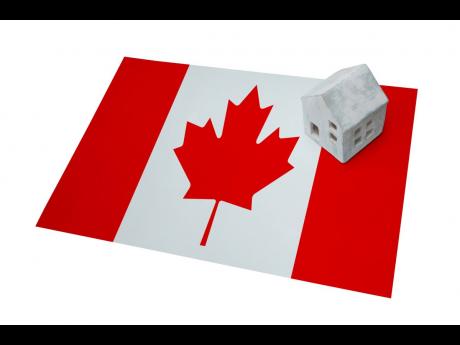Immigration Corner | What is Canada’s EMPP?
Dear Miss Powell,
My husband was killed in a shoot-out, and I am scared that they will be coming back for me and my child. I have friends in Canada who are encouraging me to apply for refugee status. I heard about a programme called EMPP that refugees can use to live in Canada. What is the EMPP? I am writing to find out about this programme and if I’m eligible. I look forward to hearing from you urgently.
TP
Dear TP,
I am sorry to hear about the loss of your husband and that you are concerned about the safety of your family. You may have various options to come to Canada depending on your ability to satisfy the requirements under the existing programmes.
A few years ago, Canada implemented the Economic Mobility Pathways Pilot (EMPP) in response to the global refugee crisis. To qualify, you must first be recognised as a refugee or displaced person who needs protection. A refugee is defined as someone who has been forced to flee conflict or persecution and has crossed an international border to seek safety. You must be able to demonstrate that you have a well-founded fear of persecution. You must have seen or experienced many horrors so that you cannot return to your home country without risking your life or face imprisonment.
The term refugee is a legal term that carries with it certain protections under the United Nation Refugee Agency. The first step is to prove your refugee status. To prove your refugee status you will need to have one of the following documents: a positive Refugee Status Determination from the UN Refugee Agency, or a refugee-hosting country; proof that you are registered or recorded as a person of concern by the UN Refugee Agency; have a refugee certificate from the United Nations Relief and Works Agency for Palestine in the Near East (UNRWA); have proof of being registered or recorded as a person of concern with UNRWA; proof that you have temporary protected status and have a copy of the completed durable solution information form.
PATHWAYS
Once you have been deemed eligible under the EMPP and you qualify as a skilled refugee, or other displaced person, your next step is to be deemed eligible to immigrate to Canada by qualifying under one of the following programmes: the Atlantic Immigration Programme, The Provincial Nominee Programme, or the Rural and Northern Immigration Pilot. Application is available on the Government of Canada website at https://www.canada.ca/.
To be eligible under these programmes you will need to provide proof of work experience, education, and language skills just like the other programmes. This is because this pilot is still considered to be an economic programme although certain barriers have been removed taking into consideration the challenges that refugees face.
There is also the federal EMPP pilot, which has the same basic requirements, except that the government will waive the application and biometric fees for you and your dependants. The government plans to review and process your application in approximately six months, cover the cost of medical exams and grant you access to the Immigration Loans Programme. If your application is approved, some applicants may also be granted assistance with the right of permanent residence fee, travel cost, and settlement services.
NON-UN REFUGEE
If you do not qualify as a UN Refugee and you do have any of the documents listed above and you have a well-founded fear of persecution, then you may need to apply to one of the recognised organisations to assess your eligibility. Once approved, then you will be provided with a referral letter so that you can apply under the EMPP.
The organisations that you may contact to provide this referral letter are TalentLift, Talent Beyond Boundaries, Jumpstart Refugee Talent, RefugePoint, HIAS, FOCUS Humanitarian Assistance, International Rescue Committee and World University Service of Canada. Each of these organisations has a website where you may find additional information. These organisation have an agreement with the government of Canada to mobilise individuals, schools, and businesses to resettle refugees through education and employment pathways.
If you have chosen to move, then you may be deemed to be an immigrant and not a refugee. Most refugees are forced to flee in the hope of finding help. If you are choosing to relocate and have the education, language skill, work experience, plus the resources to immigrate to Canada, then I recommend that you schedule an appointment with a Canadian immigration lawyer to explore your options. You may be able to qualify under the above programmes, the Federal Skilled Worker Programme or Federal Skilled Trade Programme, without the need to claim refugee status.
Deidre S. Powell is a lawyer, mediator, and notary public in Canada. You may connect with her on Facebook and Instagram. You may also call or WhatsApp 613-695-8777.


